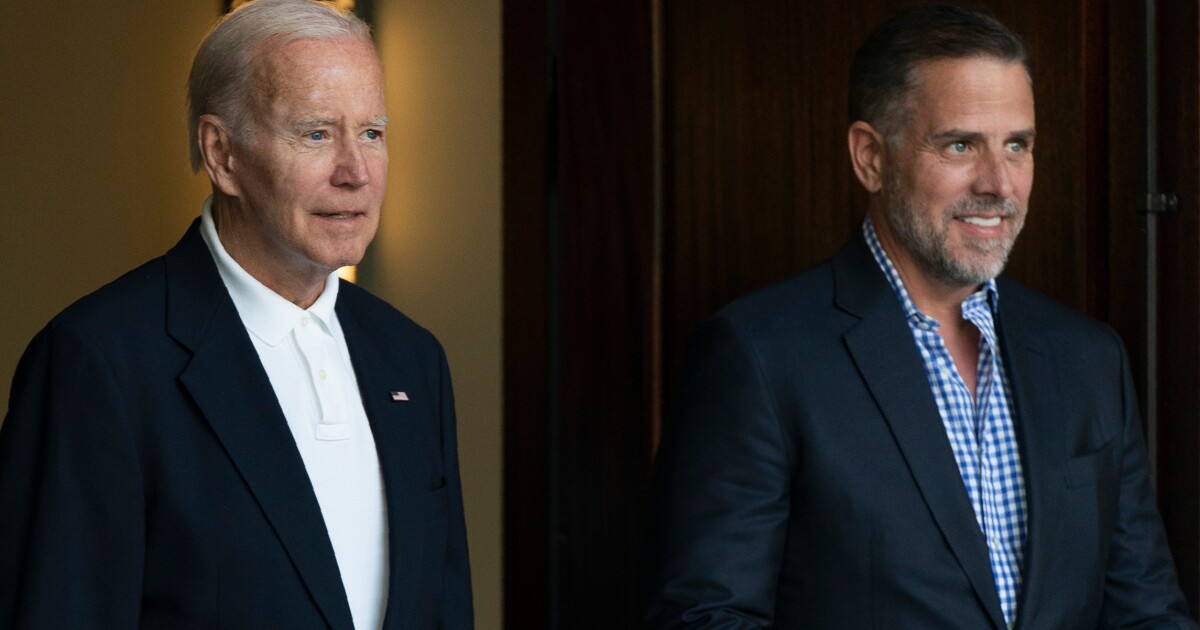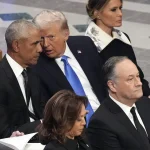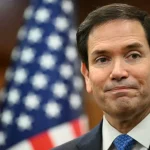

What would the Founding Fathers think of Hunter Biden?
Of course it’s impossible to know, but based on historical evidence at least a few would find him recognizable, or even familiar. While technology has changed dramatically over the last 250 years, human nature and family dynamics have not.
UP FOR DEBATE: TRUMP, DESANTIS, AND 2024 GOP HOPEFULS’ STANCES ON ABORTION
And despite the headlines and congressional hearings, the historical record shows that even the most misbehaved presidential children may not have much impact on election outcomes.
Troubled first family members are as old as the presidency itself, dating back all the way to the first president of the United States and continuing today, only with better documentation.
That’s not to say that problem children are the norm. More than one executive offspring has risen to become president themselves, while others caused headache after headache, some even ruining their fathers’ post-presidential lives.
The first example carries a bit of an asterisk. George Washington did not have any biological children but helped raise the offspring of his wife Martha, who had four children by her first husband before he died and left her a 26-year-old widow.
George Washington grew particularly frustrated with one of his step-grandchildren, George Washington Parke Custis, which we know of today thanks to Washington’s letters. Custis attended three different colleges as a young man, including the precursors to the University of Pennsylvania and Princeton University, and graduated from none of them.
After Custis returned home for good after only one semester at a Maryland college, George Washington sent him back to his mother with a searing note that could describe a modern teenager who plays too many video games.
“He appears to me to be moped and stupid,” the first president wrote. “[He] says nothing, and is always in some hole or corner excluded from the company.”
Custis repaid Washington somewhat in later years by turning his home (now part of Arlington National Cemetery) into a shrine to his famous grandfather, and even wrote books and plays about George Washington’s life.
The fourth president was not so lucky.
James Madison is hailed as the “Father of the Constitution,” but he was also the stepfather of a man who brought the entire Madison family crashing down.
That man, John Payne Todd, is arguably one of the closest predecessors to Hunter Biden. Like the younger Biden, Todd’s life was marked by early tragedy and personal struggle. Todd’s father died when he was just 1 year old, and his mother married the much older Madison a year later.
As an adult, Todd never developed a career but did develop a love for alcohol, guns, and gambling. He was twice sent to debtors’ prison, and Madison later mortgaged and then lost his Montpelier, Virginia, plantation in order to cover his stepson’s debts.
Todd’s mother spent the end of her life in genteel poverty following Madison’s death and the sale of Montpelier, and Todd only outlived her by two years before succumbing to typhoid fever at age 59.
It wasn’t all bad for the Founding Fathers. The sixth president, John Quincy Adams, was the eldest son of the second president, John Adams, becoming the first man to follow his father into the executive office.
“On balance, presidential children have been more good than bad,” presidential historian Craig Shirley told the Washington Examiner. Shirley points to examples like the four sons of Franklin Delano Roosevelt who all served in World War II, or the sons of George H.W. Bush who became the 43rd governor of Florida and the 43rd president.
Yet even some of the most celebrated presidents didn’t escape family drama.
“Honest Abe” Lincoln attracted a measure of controversy when he and his wife kept their oldest son, Robert Todd Lincoln, out of the Civil War until its final stages, and then in a mostly noncombat role when he finally enlisted. But the younger Lincoln succeeded in life and was rumored for the presidency in later years, though he declined to run.
One of the more colorful presidential children was Alice Roosevelt Longworth, the irrepressible daughter of Teddy Roosevelt. Her father became president when she was just 17, and Longworth soon became a fashion icon and a tabloid sensation, the subject of public fascination and even popular music.
“The whole phenomenon of media attention to the first family really dates to the Teddy Roosevelt administration,” David Greenberg, a Rutgers University history, journalism, and media studies professor, told the Washington Examiner. “He was the first president since Lincoln with young kids in the White House, and the first ever to do so amid a mass media environment.”
Longworth smoked cigarettes in public, kept a pet snake in the White House, and annoyed her father with unsolicited political advice. She married a speaker of the House but had her only child via an affair with a U.S. senator.
“I can either run the country, or I can attend to Alice,” Roosevelt once said. “I cannot possibly do both.”
More recent presidents might have thought the same thing about their relatives.
Richard Nixon’s brother Donald borrowed $205,000 from business magnate Howard Hughes in 1957, while Richard was vice president, in order to shore up a failing drive-in restaurant. The business went bust anyway, and questions about the nature of the loan haunted Nixon for the rest of his political career.
Jimmy Carter was a devout Baptist who taught Sunday school into his 90s, but his relatives proved that the apple can indeed fall far from the tree.
Carter’s younger brother, Billy Carter, ran the family’s peanut business and promoted “Billy Beer” in the 1970s.
“I had this beer brewed up just for me,” read a note from Billy printed on each can. “I think it’s the best I ever tasted. And I’ve tasted a lot.”
His outlandish reputation took a dark turn when it was reported that he received up to $2 million from the government of Libya, an incident with strong parallels to the doings of Hunter Biden.
Meanwhile, Jimmy Carter’s sons Jack and Chip both used illicit drugs, the latter developing a serious drug problem that led to an estrangement from his father. Chip and his father reconciled before Carter became president, and Chip later shared a “big fat Austin torpedo” (marijuana) with country star Willie Nelson on the roof of the White House.
Ronald Reagan also found himself saddled with children who seemed diametrically opposed to his ideals. In 1986, Reagan ordered an investigation into pornography that became known as the Meese Report. Eight years later, his daughter Patti Davis posed for Playboy. His son Ron Reagan has become an outspoken liberal advocate and atheist.
Finally, there is Bill Clinton’s half-brother Roger, an actor whose string of minor roles in movies and television began and ended with the Clinton presidency.
The Secret Service gave Roger Clinton the code name “headache,” and for good reason. In 1999, Roger took $50,000 and a Rolex from the Gambino crime family on the condition that he convince Bill to pardon the jailed mobster Rosario Gambino.
Gambino did not receive a pardon, but Roger Clinton did shortly before his brother exited the White House, nullifying a 1985 federal cocaine possession and drug trafficking conviction.
Presidential children in the 21st century have been mostly clean, though Democrats might cry foul over the business dealings of Donald Trump’s son-in-law Jared Kushner.
Conservatives counter that Hunter Biden is not just another wayward son. They point to growing evidence that Joe Biden knew about, countenanced, and potentially profited from his son’s adventures in Ukraine and China.
“This is different,” Shirley said. “It’s not isolated. It’s part of a pattern. It’s indicative of criminality in the Biden family. He’s the most obvious representative, and while his father doesn’t snort cocaine from the rear ends of hookers as far as we know, he has taken illegitimate money from foreign governments and foreign entities.”
The question going forward will be how much weight voters give the Hunter Biden saga, especially as the 2024 presidential contest sharpens into view. History doesn’t show much correlation between nefarious relatives and election results.
University of Virginia Center for Politics Director Larry Sabato points to the Billy Carter precedent as a relevant example.
“Hunter Biden will have the same effect on the 2024 election results as Billy Carter had on the 1980 results: Next to none,” Sabato posted on X, formerly known as Twitter.
“Refresher: President Carter’s colorful brother Billy took a ‘loan’ of $200,000 to $2 million from Libyan dictator Muammar Gaddafi — months of bad headlines plus Congressional investigation,” he continued. “Partisans love this stuff but it’s not why or how people vote for president.”
That warning hasn’t stopped Republicans from digging deeper into Hunter-related investigations, with impeachment rumors beginning to grow louder as the GOP seeks more information and documents from a reluctant Biden administration. The Department of Justice has appointed a special counsel over the matter.
CLICK HERE TO READ MORE FROM THE WASHINGTON EXAMINER
The White House counters that Hunter Biden’s story is a matter of private concern, not public.
“He’s focused on the American family, but they want to focus on his family,” press secretary Karine Jean-Pierre told a reporter on July 25. “They can do whatever it is that they wish to do, but we’re going to stay focused. We’re going to stay steadfast.”





